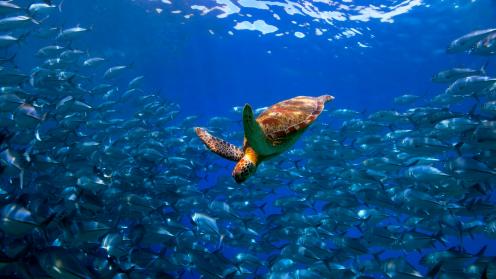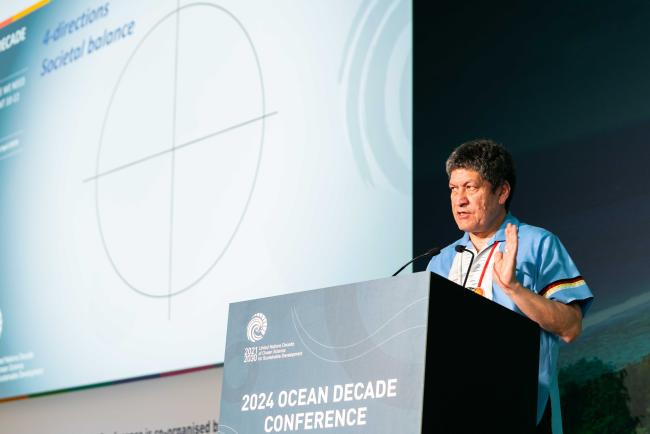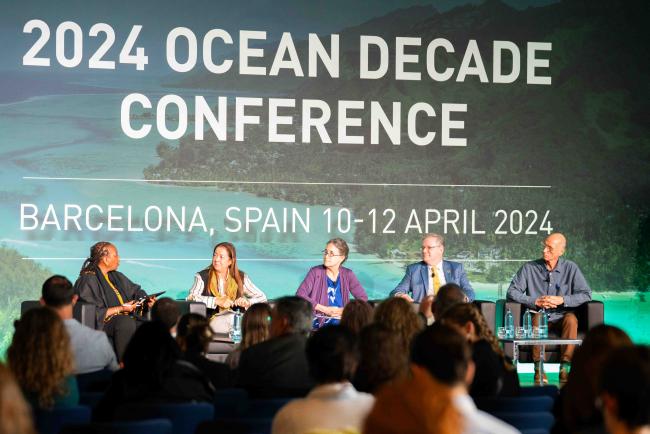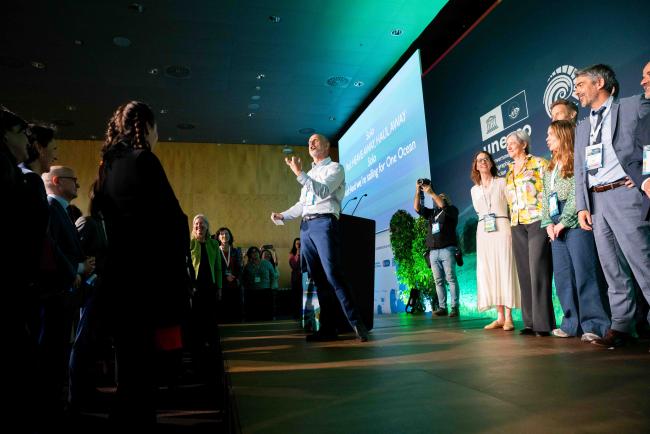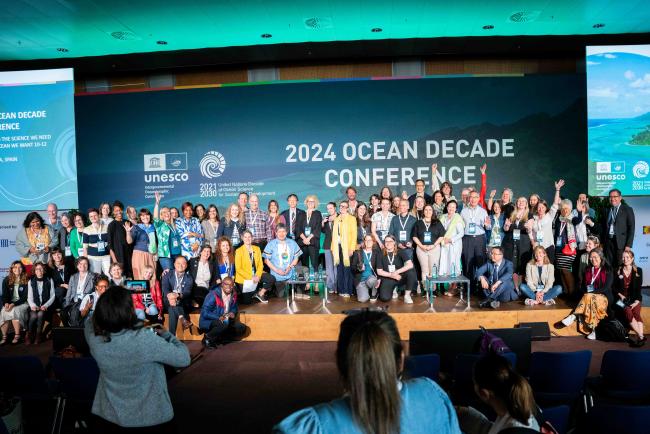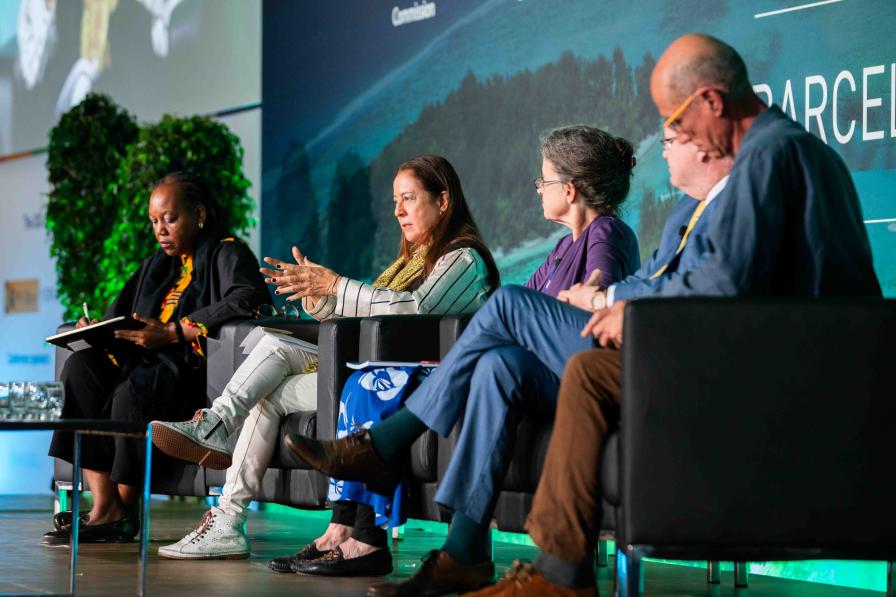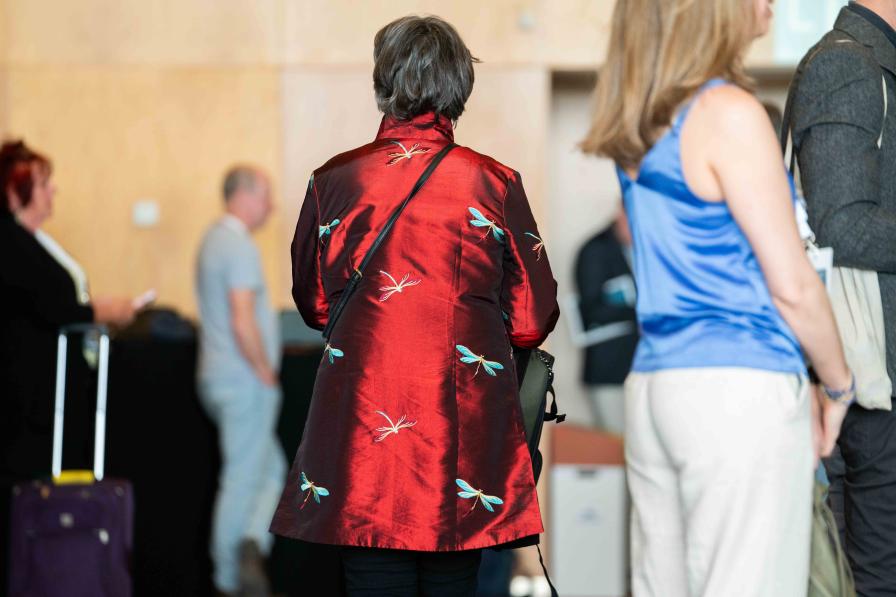The human dimension of science for a healthy Ocean was the focus on the final day of the conference.
The morning plenary and parallel sessions addressed skills, knowledge and technology for all, and changing humanity’s relationship with the Ocean. Jacqueline Uku, Kenya Marine and Fisheries Research Institute (KMFRI), moderated the plenary panel discussion. In a keynote presentation, Ken Paul, Pokiok Associates, urged honoring the UN Declaration on the Rights of Indigenous Peoples, embracing the concept of reciprocity, investing in Indigenous Peoples and their knowledge systems, and building mutually beneficial partnerships.
During a panel discussion, speakers called for a return to a human rights-based approach and using existing guidelines, such as the Voluntary Guidelines for Securing Sustainable Small-Scale Fisheries. They noted that “everything that we do to affect the Ocean has to do with human behavior.”
Participants split into four parallel sessions to discuss the draft white papers related to these issues. On skills, knowledge and technology for all, speakers highlighted that assets such as research vessels, access to education, and computing power were still distributed highly unequally, and stressed the need to raise the number of ocean scientists and policymakers from under-represented groups.
Ten presentations showcased various scientific initiatives related to this Challenge. Discussion centered on, among other things: the need to support early-career ocean professionals to develop broad knowledge and skills; funding sources for capacity development; and how to reach and educate those who have no interest in the Ocean.
On changing humanity’s relationship with the Ocean, speakers stressed that “to achieve the scale of societal transformation needed, the society has to be involved,” and called for the development of an engagement strategy that strengthens diversity, equity, and inclusion.
Ten experts presented various initiatives aimed at: integrating different types of knowledge; involving a wide range of stakeholders, specifically underrepresented groups; and promoting equity among Western and Indigenous frameworks.
An afternoon plenary session was dedicated to resources and partnerships for the Ocean Decade. Panelists discussed ways to translate science to people and from people to policy, and underlined the power of science diplomacy, which provides opportunities for countries to collaborate and further peace.
A special event featured Haakon Vatle, CEO, Statsraad Lehmkuhl Foundation, and leader of the One Ocean Expedition that sailed around the world for ocean science, education, and outreach in 2021-2023. Vatle engaged participants to come to join in singing a traditional sea shanty, adapted to honor the UN Ocean Decade.
The closing session highlighted several ongoing initiatives related to the UN Ocean Decade. Julian Barbière, IOC/UNESCO, described three new initiatives, including a new programme for Decade Action in Africa that will contribute to the Ocean Decade Africa Roadmap.
Vidar Helgesen, IOC Executive Secretary, Assistant Director-General of UNESCO, presented the Conference’s key outcome document, the “Barcelona Statement”, which identifies three sets of priorities: ocean knowledge and science generation to inform management decisions; infrastructure needs, including for marine pollution monitoring and ocean observations; and cross-cutting issues such as co-designing initiatives and embracing all knowledge systems.
Closing statements were made by: Sergi Tudela, Director-General for Maritime Policy and Sustainable Fisheries, Government of Catalonia; Maria Eugènia Gay, Second Deputy Mayor, Barcelona; and Eloísa del Pino, President of the Spanish National Research Council (CSIC).
Del Pino said ocean challenges are vast, but opportunities are great if we follow “the voice of the sea, which will tell us where to go. Our sea is our confidant.”
She closed the meeting at 6pm.
